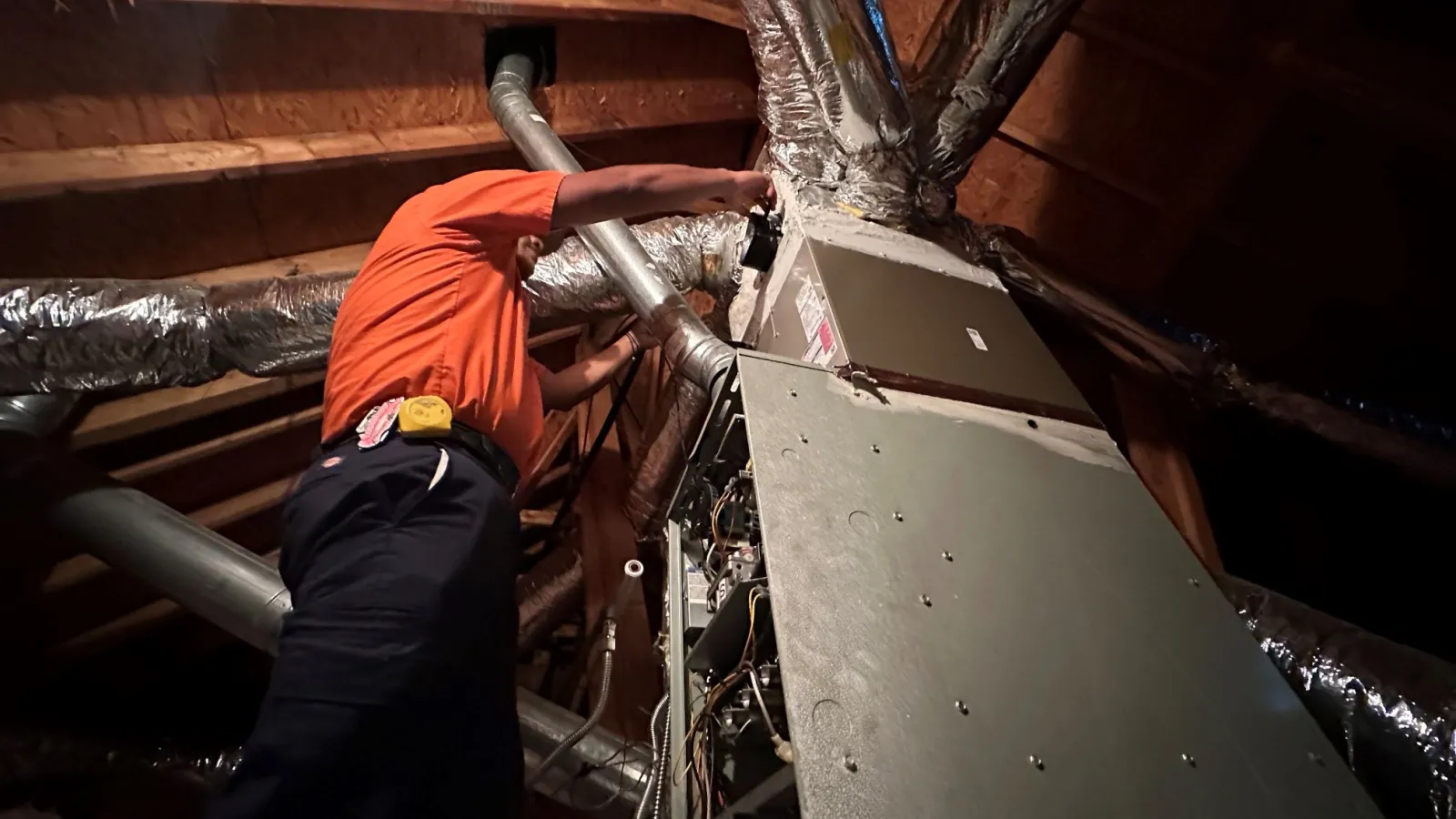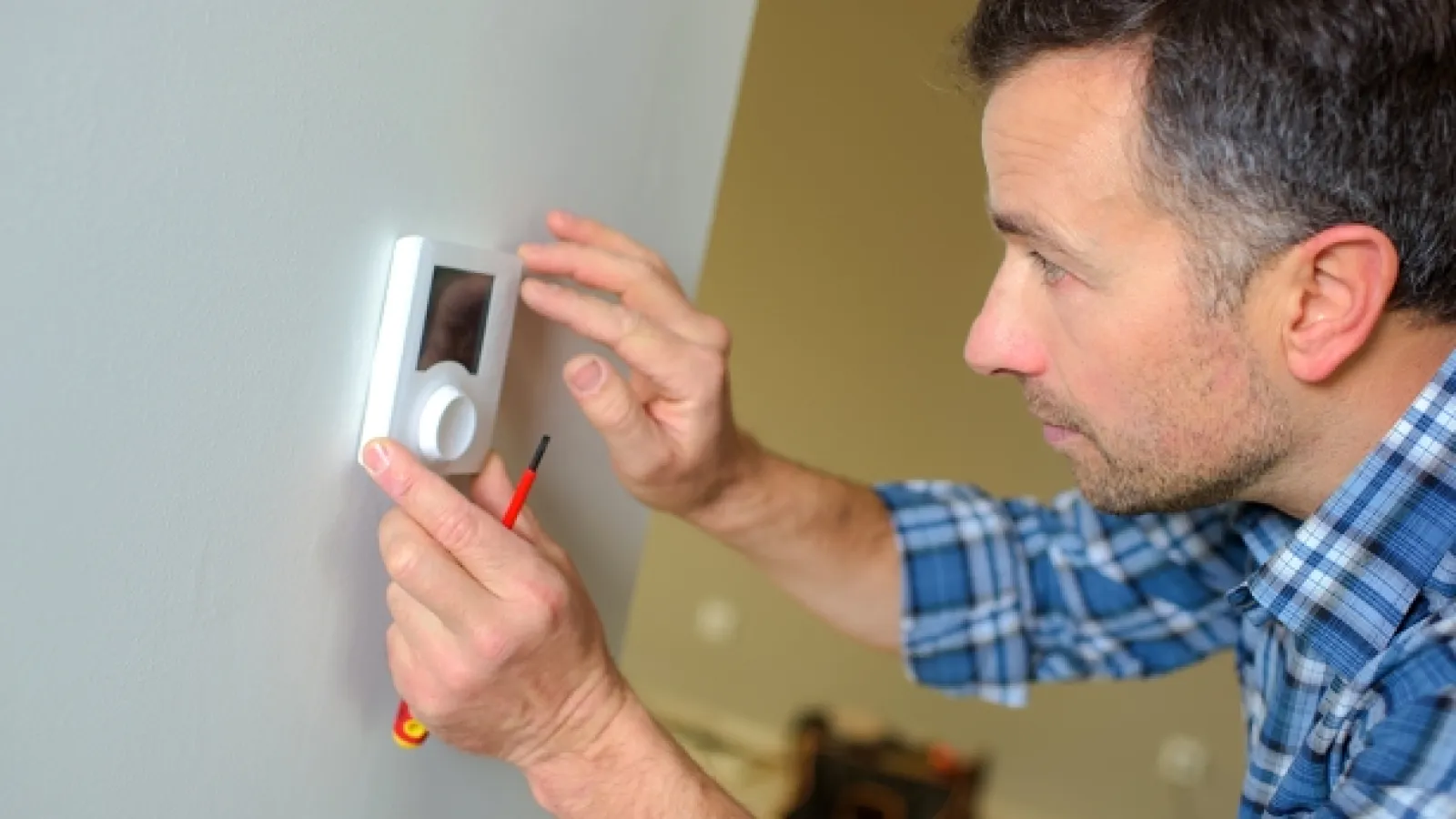When your furnace is running smoothly and performing its job properly, it's usually out of sight, out of mind. When issues do arise, though, your furnace usually has a way of letting you know by exhibiting strange noises or smells.
When you begin to notice strong furnace odors, it could be for several reasons. In our most recent blog, the heating and cooling technicians at Estes Services explain the different types of furnace odors to be aware of and how to fix them.
Why Does My Furnace Smell?
If you notice a furnace smell, try not to panic. Furnace smells can range from serious to completely normal. It's always a good idea to contact a reputable HVAC company at the first sign of furnace odors so they can determine the cause.
Some of the most common smells a furnace can make include:
Burning or Electrical Smells
A burning smell coming from the vents or the unit itself is one of the most common furnace smells. In many cases, this is caused by excess dust buildup burning off in the air ducts or on the burners and the heat exchanger component. This often occurs when you turn the furnace on for the very first time each season.
Typically, this smell only lasts a couple of hours. If the burning smell persists, though, contact a professional, as it could indicate something more serious such as a motor or wiring that are overheating. Aside from a burning smell, there could also be a metallic or electrical smell similar to burning oil, plastic, or rubber. A burning dust smell could be an indication of a full air filter. Try replacing it to see if that helps stop these burning odors. If not, call Estes to have your furnace inspected as soon as possible.
Chemical Smell
A cracked heat exchanger can allow gases such as carbon monoxide to mix with your home's air supply and often produce a smell similar to formaldehyde. If you notice a chemical smell, shut off the unit immediately. Cracked or broken heat exchangers result in about 1,500 deaths in the U.S. each year.
Musty Smell
A persistent musty smell or dirty sock odor can indicate the presence of mold or mildew in your air ducts or furnace. Mold can often grow in air ducts, especially if you live in an area of the country with high humidity levels. Mold produces allergens that can cause allergic reactions in sensitive people and lead to fever symptoms, including sneezing, watery eyes, and an itchy nose or throat. If you think mold is causing a musty smell, immediately contact a professional to remedy the issue.
Gas or Rotten Egg Smell
A gas or a rotten egg smell is likely an indicator of a natural gas leak. Since natural gas has no odor, gas companies add a chemical called mercaptan to it, which gives it an unpleasant rotten egg-type smell. If you notice a gas smell, turn off the gas supply shutoff valve; if possible, exit your house and call 911. Exposure to natural gas can lead to serious health issues and even death.
Furnace gas leaks are often caused by a cracked heat exchanger, which will need to be repaired or replaced by a professional HVAC technician. It's important to note that a rotten egg, or a sulfur smell, could also be caused by a sewer leak or a dry sewer trap near your furnace.
Car Exhaust Smell
The smell of car exhaust inside your home may indicate that your furnace is not venting properly. Furnace vent pipes vent gases that are created during the combustion process outside. Contact a professional to check for blocks in the pipes to ensure carbon monoxide isn't spilling back into your home.
Contact Estes for Furnace Repairs
If you notice any strange furnace smells, contact the heating and cooling system experts at Estes Services. We've served the Greater Atlanta area since 1949, and you can trust our technicians to make the appropriate repair to return comfort and safety to your home. Reach out to us today to schedule an appointment.



